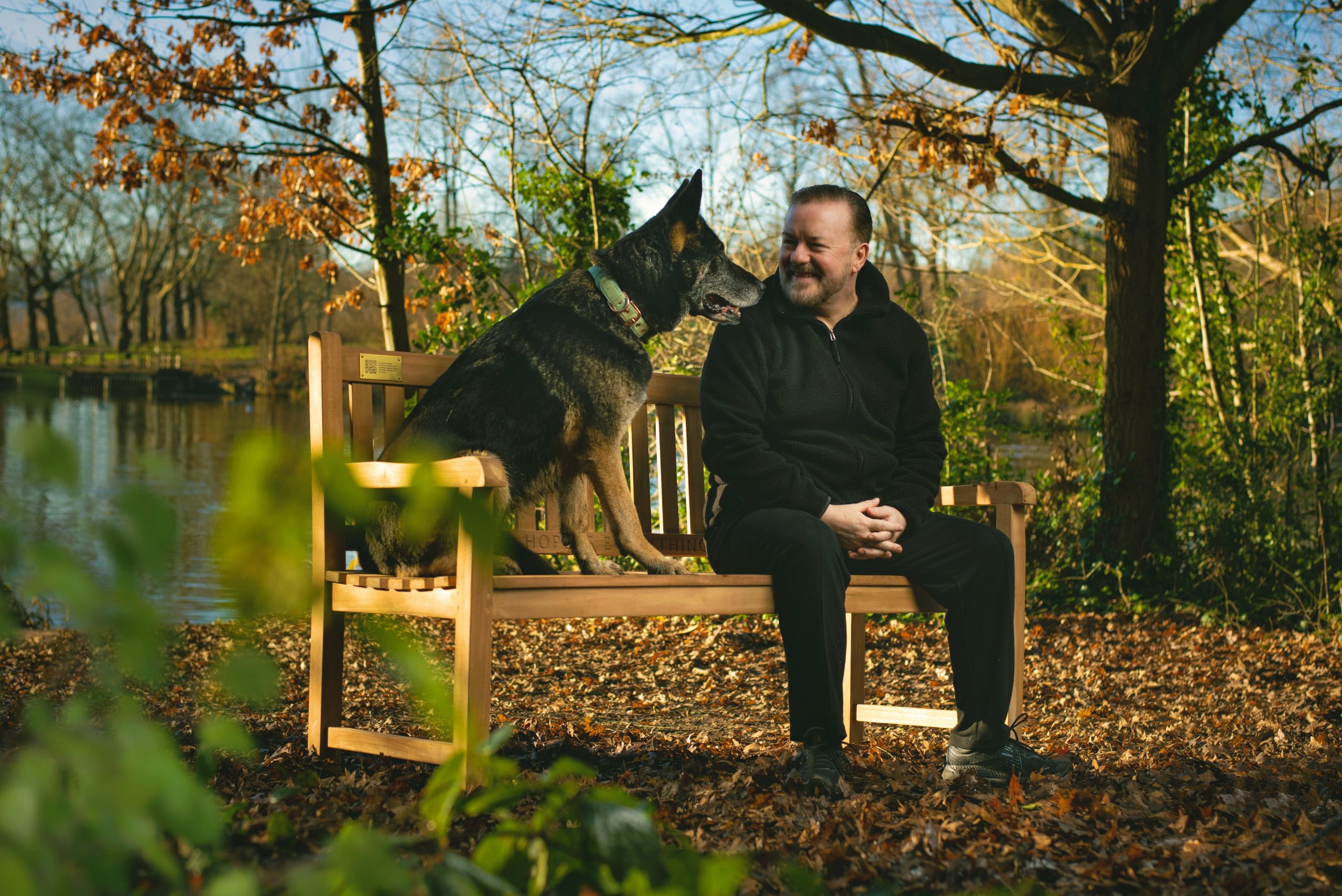
TV Writer Deyna Grimshaw reviews the final season of Ricky Gervais’ After Life, praising its balance between brash comedy and sentimentality
Content Warning: discussion of grief and suicidal intent
In January, Netflix blessed our screen with the third and final series of Ricky Gervais’ After Life. It has already made it into the top 10 series streamed in 14 countries, and sat at number 1 in the UK in the week after its launch.
Gervais is not new to combining sadness with comedy, but his latest venture surpasses anything which he has created previously. The ability to create laugh-out-loud moments in a series highlighting the grief and depression caused by losing a loved one is a very rare and beautiful power and one which he has mastered. The two forces are somehow evenly balanced – whilst I have no doubt that most of us ended the final episode in tears, I also know that whenever I discuss the series with anyone, the most memorable part of it has always been that infamous line about the ginger kid in series one.
After Life, like much of Ricky Gervais’ work, is akin to marmite – you either love it or you hate it
After Life, like much of Ricky Gervais’ work, is akin to marmite – you either love it or you hate it. People tend to dislike the show for one of two reasons, the first being that some dislike Gervais’ brand of humour (it is his signature no-holds-barred style, and therefore you can see why it may not appeal to some). The other reason is that people feel that the combination of brash comedic lines with the sentimentality of grief is unrealistic or rude. However, it is exactly this combination that makes the series realistic. Grief is an extreme emotion, and it can plunge people into depression as seen in Tony’s character – but life must go on. Whilst grief never goes away, it slowly becomes more bearable to live with, and we are able to find humour in life despite our pain.
Part of being human is learning to live with both pain and happiness. If Tony did not live as he did in After Life, he would either have ended his life as he was going to do in the first season, or he would have moved on despite the series taking place shortly after Lisa’s death, which would be an insult to the depth of love he felt for her (although this is not to say that people who find love again later in life have forgotten their love for their first partners –in fact, this is what Anne is continuously trying to tell Tony within the series). Tony has to learn to live through his grief and to understand who he is as a person without Lisa.
Whilst I can understand why After Life may not be everyone’s cup of tea, I believe it is an important lesson in human nature, and finding joy in life even when it appears most hopeless
As usual, the video clips of Tony’s late wife Lisa (Kerry Godliman) are shown throughout the series, but they appear as less of a crutch to Tony in this series, and more joyful. Gervais himself has said that Godliman’s recital of the poem Do Not Stand At My Grave And Weep, by Mary Elizabeth Frye, still makes him choke up to this day. Similarly, June (Jo Hartley) offers beautiful insight to Tony when she explains that Lisa would have wanted him to accept the money for her life insurance, a dilemma that many people experiencing grief may be troubled with.
Whilst I can understand why After Life may not be everyone’s cup of tea, I believe it is an important lesson in human nature, and finding joy in life even when it appears most hopeless. I don’t doubt that this series will go on to be watched for years to come, and who knows – if we’re lucky, perhaps Gervais will grant us a Christmas special in a year or two.
Rating: 5/5
Read more TV reviews here:
Review: Succession – Season Three
Review: What We Do In The Shadows – Season Three
Review: Stath Lets Flats – Season Three

Comments